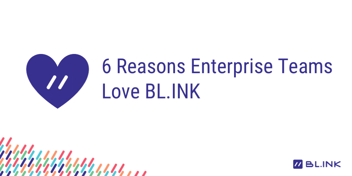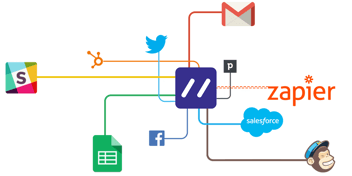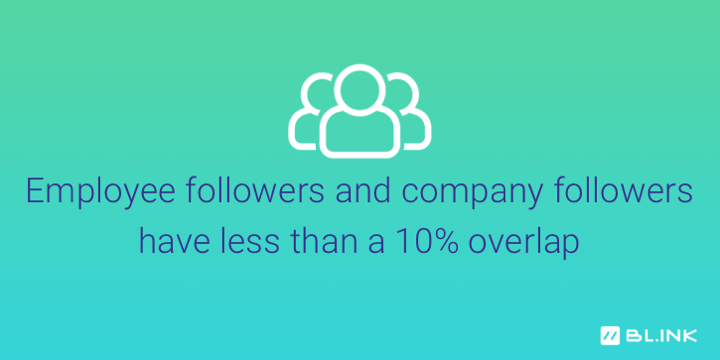
Listen to this blog
“Organic Social is Dead. Try This Instead.” Part Three of Three
Several weeks ago, we were fortunate to host BL.INK advisor and social media strategic Neal Schaffer as a special guest presenter in our educational webinar series.
Neal Schaffer is a leading social marketing consultant; he helps executives and professionals implement successful social media strategies for businesses. He’s the CEO of the social media agency PDCA Social; a social media educator at Rutgers University, Irish Management Institute, and the University of Jyvaskyla; a social media keynote speaker who has spoken at hundreds of events on four continents; and the author of three social media books. Neal is a true innovator and influencer in the growing world of social media for business.
If you missed this webinar session, read on to learn more from a world expert! Note: this was such an action-packed session, we’ve divided the content into three blog posts. This is the third post in the three-part series.
A quick recap of the first two articles: Part One covered the rise and fall of Organic Social, and introduced the first of three alternative social strategies: smart and effective Content Curation. Part Two was about Influencer Marketing, and how best to adopt an influencer marketing approach that’s right for your business.
Today’s topic is all about Employee Advocates.
Strategy 3: Turn Your Employees Into Advocates
There’s one more big fan base that most businesses often overlook when it comes to social marketing assets – their own employees. Nearly every employee uses some form of social media; many of them are as socially active as any ardent fan or follower. Employees are the owners of their personal social media channels, so their collective reach is much greater than the company pages alone. Even more important, the endorsement from an employee is more trustworthy than from a company’s CEO.
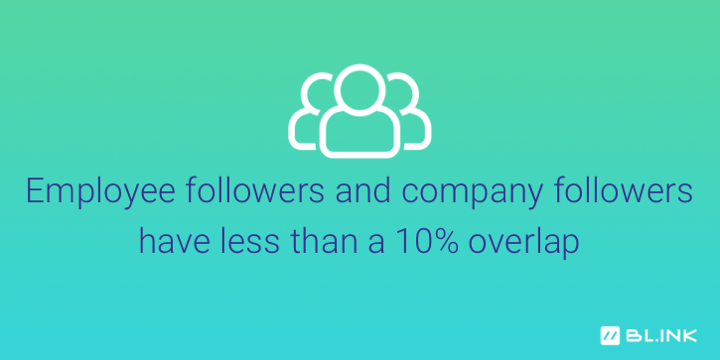
Via Smarp
While it might seem strange to call employees “fans,” they are exactly that: engaged stakeholders with valuable opinions. Their livelihoods and even their identities are linked to the business; happy employees frequently view their employment as a badge of honor. As a social marketer, your goal is to connect with these loyal teammates: they want the company to succeed and will likely be happy to share social posts, or perhaps even assist you with social content creation.
The Multiplier Effect
Stats – the Average Employee Advocate has:
- 420 Facebook friends
- 400 LinkedIn connections
- 360 Twitter followers
That’s a sizable audience, and with minimal overlap with the company’s online presence, you can see how enlisting employees for social outreach is a powerful amplifying strategy:
Number of employees x Average number of Facebook friends = ________ net new impressions
Even small companies can benefit quickly by enlisting employees as social media advocates.
Providing Incentives to Employee Advocates
Most companies have been slow to establish social posting policies for their employees. For those that have implemented policies, they’re often restrictive – designed to reduce risk and liability on behalf of the organization. Few companies have engaged in progressive social engagement with employees.
While risk and liability are important considerations, marketers can still find pathways to success. Marketers are better off devising programs that encourage, but don’t mandate, employee posting to social channels. What’s more, marketers should provide guidelines and examples that help employees stay on message and on-brand, and that also satisfy the legal department.
In addition to guidelines and suggestions, employees respond well to rewards. Merchandise giveaways, gift cards, all-company thanks/recognition, and other “brownie points” for regular participation are surefire tactics to inspire employees to contribute to your social marketing efforts.
In some cases, great content may already exist – you just need to find it. Check out your company intranet, follow the advice of internal company “sleuths” who can point you to specific employees’ personal pages on Facebook and other platforms. You may find a treasure trove of reusable content; your only task is to request a re-tweet or re-share from the owner, followed by a well-publicized thank-you for their contribution.
It’s important to remember that employees don’t want to spam their friends and family with promotional junk. Keep your requests related to topics and tasks that employees want to share, such as:
- Content marketing: sharing a blog post on a topic they care about
- Brand awareness: a quick shout-out about what their company is up to, or the celebration of a recent milestone
- Reputation management: add to the positive reputation of the brand by posting about why they like working there
- Social recruiting: complement the headhunters by using your employees’ own social networks to get prospective applicants excited about the company
Examples of Successful Employee Advocacy
Iceland Supermarket is based in the UK. They created the Iceland Insider app for employees to share thoughts about the company on social media. In its first three months, Iceland Insider had attracted 450 employee advocates generating over 37 million impressions.
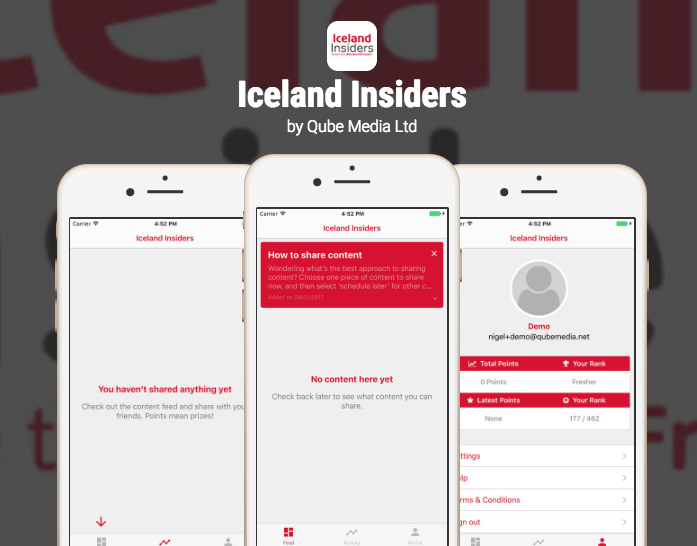
Via App Advice
IBM provided incentives to employee experts to step up and share content from a position of engineering authority. These posts drove a seven-fold increase in the conversions, as compared to posts from the company itself. At the same time, IBM engineers enhanced their personal reputations by affiliating more directly with the IBM brand.
Tracking Employee Outreach with BL.INK
Since marketers must always quantify the success of their efforts getting stats on your employee advocate is essential; the more you decentralize your company’s social outreach, the more you need to centralize your analytics. That’s where links from BL.INK can help you tag and assess social activity.
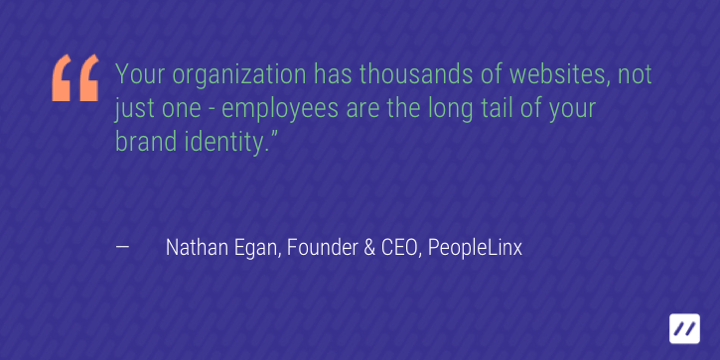
Your employees are a great asset, with trustworthy opinions for their many friends and connections. Give them a reason to show their pride in their company, and you’ll be amazed by how many answer the call.
Above All, Experiment
Articles that claim “Organic Social is Dead” only exist because, at one point, organic social was a cheap, effective way to amplify your brand. But this is no longer the case. The only constant in social media marketing is change, and really, nobody knows the future. Not even the platform holders:
- Facebook was made for college students, but now the majority of its users are 35 and older.
- Twitter was made for a podcast developer’s internal use, but now it’s where news breaks.
- Snapchat was made as a way for 20-somethings to exchange extra-private messages, but now is middle and high-schoolers’ go-to messaging app.
Remember that we’re still in the early days of social marketing: it’s all one grand experiment. Take the three strategies outlined in these blog posts and run with them. See what works with a link management platform such as BL.INK, and adjust as you gain more insights. And be ready to adapt to the next thing, because there’s always more to discover.

